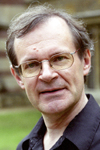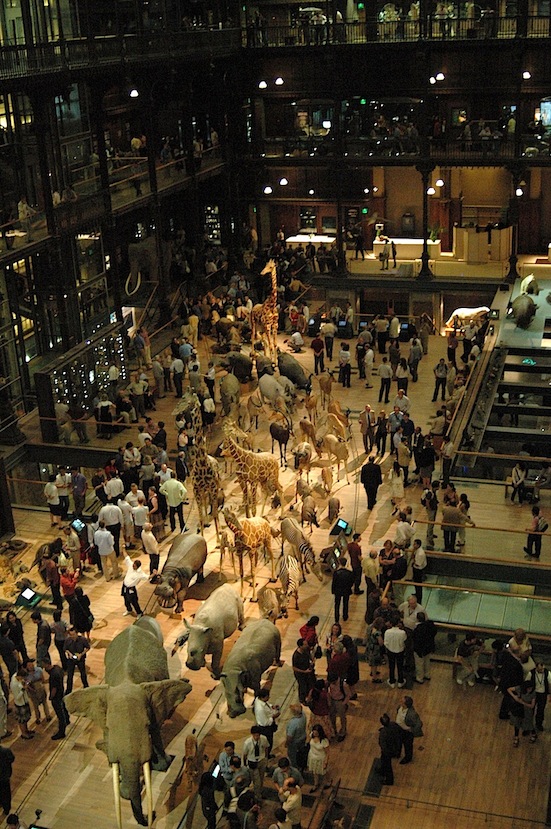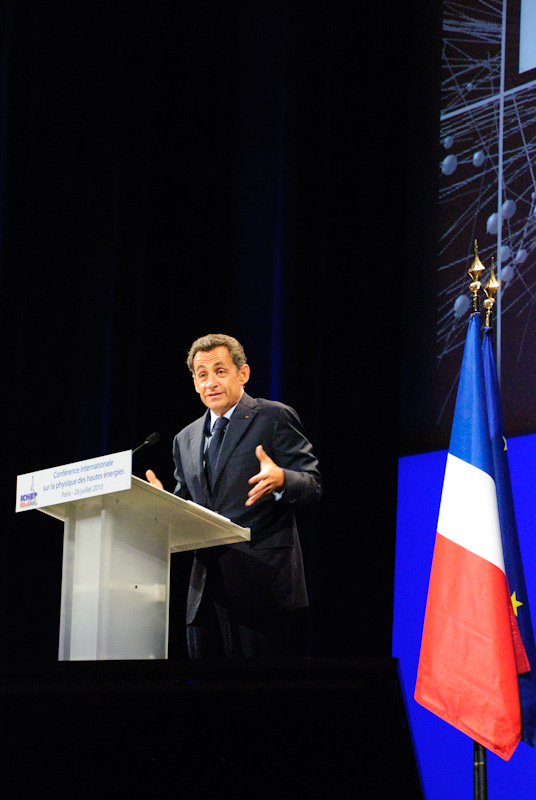Director's Corner
29 July 2010
Paris and politics
Today's issue features a Director's Corner from Brian Foster, Global Design Effort European Regional Director.
I write this "Director's Corner" in my hotel room while attending the 35th International Conference in High Energy Physics in Paris — the most important event on the particle physics calendar. Barry Barish will write in more detail on the conference in future "NewsLines". I want to take advantage of the strong ILC showing at the Conference to highlight my talk in one of the parallel session on ILC "Governance".
By governance we mean all the disparate elements required to found a convincing ILC laboratory organisation, with clear aims, transparent and accountable management and supportive governments and funding agencies. It forms an essential part of the overall "Project Implementation Plan" which is an increasingly important part of discussions in the GDE Executive Committee as we move into the second and final part of our RDR plan leading to the Technical Design Report.
This is not the first time that these questions have been considered for the ILC. For example, in 2003 during my period of office as Chair of the European Committee for Future Accelerators (ECFA), I commissioned George Kalmus to produce a plan for ILC Governance. He assembled an impressive committee of experts who produced a detailed and cogent plan for an ILC laboratory. Similar efforts took place and similar documents were produced in Asia and the USA. None of these documents had much impact however. In hindsight, the time was not yet ripe, and, perhaps more importantly, it was not possible to involve governments and funding agencies and induce them to buy into the process. In the current exercise, we have been careful to try to avoid this problem by involving governments, through the Funding Agencies for Large Colliders organisation (FALC), from the outset. Whether this will prove ultimately successful remains to be seen, but I am encouraged by our interactions so far.
Our strategy has been to avoid "re-inventing the wheel" and to gather together as much information as we can on "cognate projects" — other large, international activities whose complexity and size approaches that of the ILC. These projects include: Atacama Large Millimeter Array (ALMA), European Spallation Source (ESS), Facility for Antiproton and Ion Research (FAIR), International Fusion Experimental Reactor (ITER), Square Kilometer Array (SKA) and X-ray Free Electron Laser (XFEL). Information on these projects was gathered from published documents, web sites and by discussions with colleagues working on the projects in question. The information was initially digested into "one-page summaries" — a powerpoint slide split equally between factual information and issues and problems observed.
A rather complex collection of committees has both produced this data and subsequently digested it. The complexity is partly required by external imperatives; for example in Europe we have funding from the European Union in the ILC-HiGrade project to work on governance issues and regular milestones incorporating this work from a European perspective must be met. Three separate regional groupings exist in the Americas, Asia and Europe. In addition a "global" GDE group, chaired by me, with members from all three regions, tries to assimilate all the information to produce a GDE view. This process has now been in operation for several years; the advent of active groups in the Americas and Asia is a welcome recent development.
Having produced the one-page summaries, "pro formas" were produced with much more detailed information on each project under the following headings:
- Legal Status of project
- Management Structure
- Representation and voting structure in governing body
- Duration of agreement
- Attribution of in-kind contributions, value engineering etc
- Running costs
- Budgetary control
The purpose of the pro-formas was to gather together the relevant information from each project in such a way as to facilitate comparison between them and to allow conclusions to be drawn for ILC. It was decided that it was advantageous to produce a set of definite recommendations which represented the consensus on best practice, while recognising that often several alternative and almost equally effective solutions existed. I summarise these conclusions very briefly below:
- ILC should be set up as an international treaty organization similar to ITER.
- ILC should have a strong Council, a Director General and a Directorate. The DG should have significant delegated authority from the Council, allowing decisive action without continual need to refer back to Council.
- Each Council member state1 should have 2 official delegates and a maximum of 2 advisors. Council should decide questions not of a financial nature by simple majority; financial questions should be decided by a qualified majority voting decided by a majority of financial contributions plus a majority of individual member states.
- The ILC agreement should be fixed term — a construction period of roughly nine years plus 20 years of operation; it should be extendable by agreement of Council in periods of five years. Withdrawal would not be allowed until a minimum of ten years after the agreement comes into force and then only after one full year after notice of withdrawal.
- Recognising that it is likely that much of the contributions will be required to be spent in the region from whence the funding originates, it is essential that there should be an adequate Common Fund (of at least 20%) in order to give management enough flexibility. There should be no strict "juste retour" on this Common Fund.
- There should be a central contingency budget with a maximum of ten percent of the total project cost, to be released by Council as appropriate. Exhaustion of the central contingency should lead to appropriate descoping of the project to be decided by management with Council's agreement.
- Decommissioning should be the responsibility of the state that provided that item; the Host State should have residual responsibility.
These conclusions are expanded on in significantly more detail in a document that will be available shortly on the ILC web site. The purpose of the document is a "request for comments", to allow the community to input its ideas and comments in advance of the preparation of the final Project Implementation Plan for the TDR. They have already been presented to FALC, ECFA and ILCSC, where they have engendered considerable discussion. Several helpful suggestions were received at the FALC meeting in June, where my impression was that these ideas were generally well received.
One of the highlights of this conference has been the official opening by the President of the French Republic, Nicolas Sarkozy. He gave a thoughtful and substantive talk of considerable length, in which he pledged the French government to continue to invest more in science research despite the current financial crisis. He also had warm words for the value of "blue skies" research in general and particle physics in particular. Unfortunately, this was the only talk in the conference that was not open to questions. I would certainly like to have asked him what he thought was the best approach to make ILC a reality; his opinions would certainly have been a lot more influential than ours! As it is, we will have to continue to work for his support, and that of other world leaders, the hard way.
-- Brian Foster


